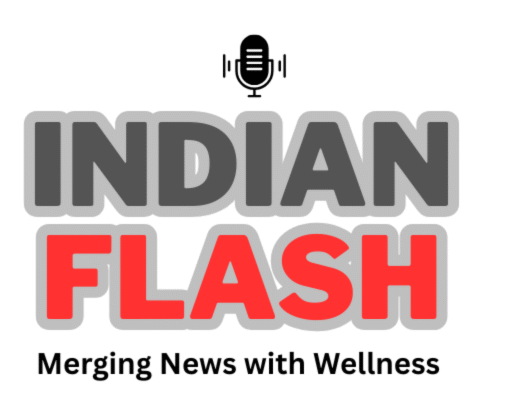Millions of people rely on coffee to power through their mornings—but could it do more than boost your energy?
A groundbreaking study presented at the American Society for Nutrition’s 2025 meeting suggests that moderate coffee intake may support healthier ageing, especially for women. While caffeine has sparked debate for decades, new science paints a more balanced—and hopeful—picture.
Let’s explore how your coffee habit could affect your long-term health, and what makes it more than just a morning ritual.
📊 What the Study Revealed About Coffee and Ageing
Researchers followed over 50,000 women for 30 years, tracking diet, exercise, mental health, and disease risk.
Key Findings:
- Women who drank 3 small cups of caffeinated coffee per day aged more healthfully than those who didn’t.
- Healthy ageing was defined as:
- No major chronic illnesses
- Strong cognitive and mental health
- Sustained physical mobility and activity
- Coffee drinkers also tended to be more physically active and socially engaged.
☕ In short: moderate coffee intake may support a lifestyle of vitality—not just offer a quick caffeine boost.
🔬 Why Coffee Might Promote Healthy Ageing
Coffee isn’t just about caffeine—it contains over 1,000 bioactive compounds, many of which support health.
Here’s how coffee may help slow ageing:
- Chlorogenic acids (powerful antioxidants) reduce oxidative stress that damages cells.
- Anti-inflammatory compounds help lower chronic inflammation—a root cause of many age-related diseases.
- Caffeine blocks adenosine, improving alertness and mental clarity.
- Coffee may boost insulin sensitivity, lowering the risk of type 2 diabetes and metabolic syndrome.
These effects may explain why moderate coffee drinkers tend to live longer and feel better as they age.
🌿 Beyond Ageing: Other Proven Health Benefits of Coffee
Moderate coffee consumption has been associated with several major health benefits:
- Lower risk of type 2 diabetes
- Reduced stroke incidence
- Improved cardiovascular health
- Lower Alzheimer’s and Parkinson’s risk
- Protective effects against liver and colon cancers
✅ Pro tip: These benefits are linked to plain black coffee or lightly sweetened versions—not sugar-loaded lattes or energy drinks.
🚫 Not All Caffeinated Drinks Are Equal
It’s not just about the caffeine, but where it comes from.
In the same study, women who drank more sugary sodas had a 20–26% lower chance of healthy ageing, even if they drank coffee too.
To get coffee’s full benefits:
- Avoid excess sugar, cream, or syrups
- Choose filtered black coffee
- Skip artificial creamers and sweeteners
💡 Caffeine in whole, natural sources works best—heavily processed versions may do more harm than good.
⏰ Circadian Rhythms: Why Timing Your Coffee Matters
When you drink coffee affects how it influences your health.
Best practices:
- Drink coffee in the morning to align with your body’s natural rhythm.
- Avoid caffeine after 2 p.m. to protect your sleep.
- Poor sleep disrupts hormonal balance, cellular repair, and memory—all crucial for ageing well.
🛌 Even the healthiest drink can backfire if it interferes with your rest.
🤔 Q&A: What You Need to Know About Coffee and Ageing
Q: How much coffee is safe to drink daily?
A: Experts recommend up to 3–4 small cups (300–400 mg of caffeine) for healthy adults.
Q: Does everyone benefit from coffee the same way?
A: No. Genes, metabolism, and gut health influence how caffeine affects your body.
Q: Can coffee replace other healthy habits?
A: Absolutely not. It supports a healthy lifestyle—but can’t replace nutrition, movement, or sleep.
Q: Should I start drinking coffee for health reasons?
A: Not necessarily. If you don’t already drink coffee, there’s no urgent reason to start just for the modest benefits.
🔎 How Lifestyle and Other Factors Influence the Results
While the coffee study shows strong links to healthy ageing, researchers caution against over-simplifying the results.
Women who aged well often had:
- Access to quality healthcare
- Time for exercise and home-cooked meals
- Less chronic stress or job strain
☝️ “We can’t eliminate the possible impact of other lifestyle differences,” noted researcher Dr. Qi Sun.
✅ Tips for Getting the Most From Your Coffee Habit
Want to enjoy coffee while supporting your long-term health?
Follow these smart habits:
- ✅ Drink it black or lightly sweetened
- ✅ Limit to 3–4 cups daily
- ✅ Avoid caffeine after 2 p.m.
- ✅ Use a paper filter to reduce LDL-raising compounds
- ✅ Skip sugary drinks and flavored creamers
- ✅ Pair it with a nutritious breakfast
🧠 Mindful coffee drinking can enhance mental focus, protect your brain, and reduce disease risk over time.
❓ FAQs: Coffee and Your Health
1. Can coffee really help your brain?
Yes. Coffee may protect neurons, lowering Alzheimer’s and Parkinson’s risk over time.
2. What’s the healthiest type of coffee?
Fresh-brewed black coffee with filtered water, ideally without added sugar or fat.
3. Is decaf still healthy?
Yes! Decaf contains many of the same antioxidants, minus the stimulating effects of caffeine.
4. Can pregnant women drink coffee?
Yes, in moderation. Doctors recommend no more than 200 mg of caffeine per day during pregnancy.
⚠️ One Last Note: Temperature Matters
While coffee itself isn’t linked to cancer, very hot drinks (above 65°C/149°F) may increase esophageal cancer risk.
🥶 Let your coffee cool slightly before sipping for both comfort and safety.
🧓 Conclusion: Coffee Isn’t a Miracle—But It’s Not a Myth Either
Coffee alone won’t make you age like a superhero—but in moderation, it can support brain health, metabolism, and vitality.
What matters most is how you drink it, when you drink it, and what else you do with your day. Coffee may give you the energy to move, think, and live better—but it’s your daily habits that define how you age.
So if you love your morning brew, enjoy it—with a little mindfulness and a lot of gratitude.




